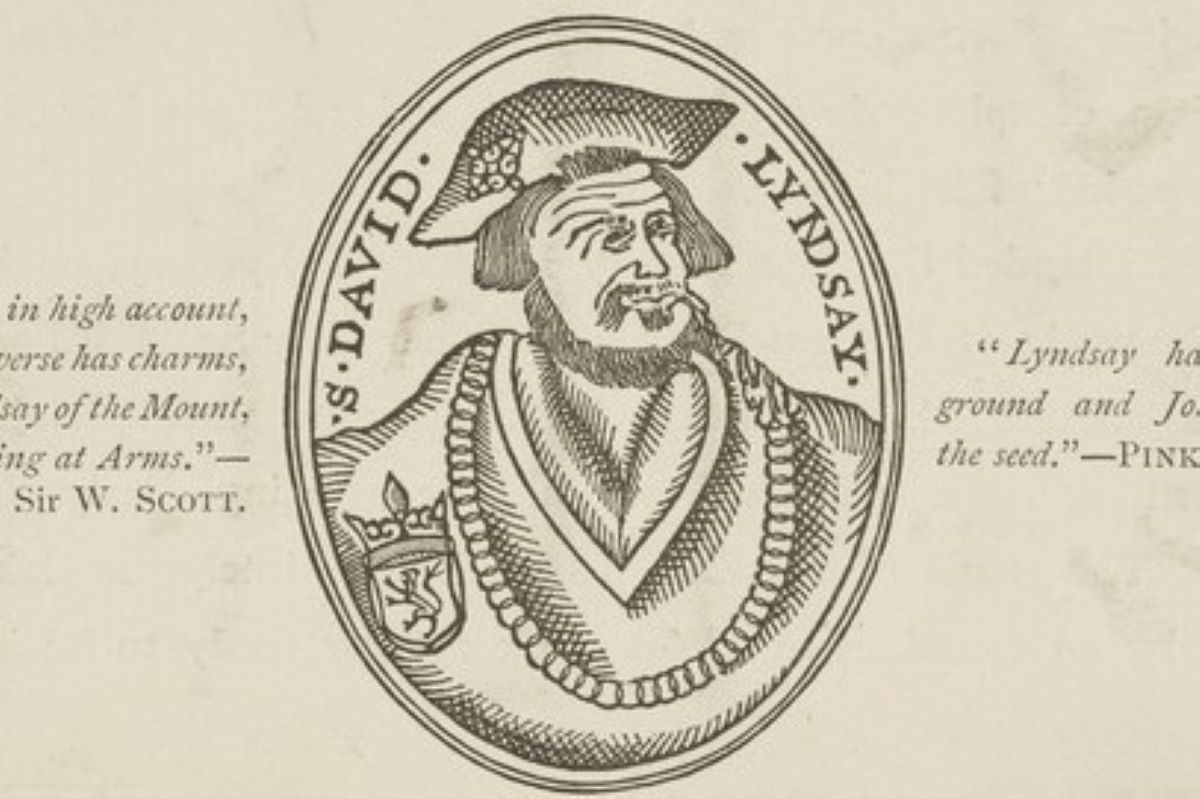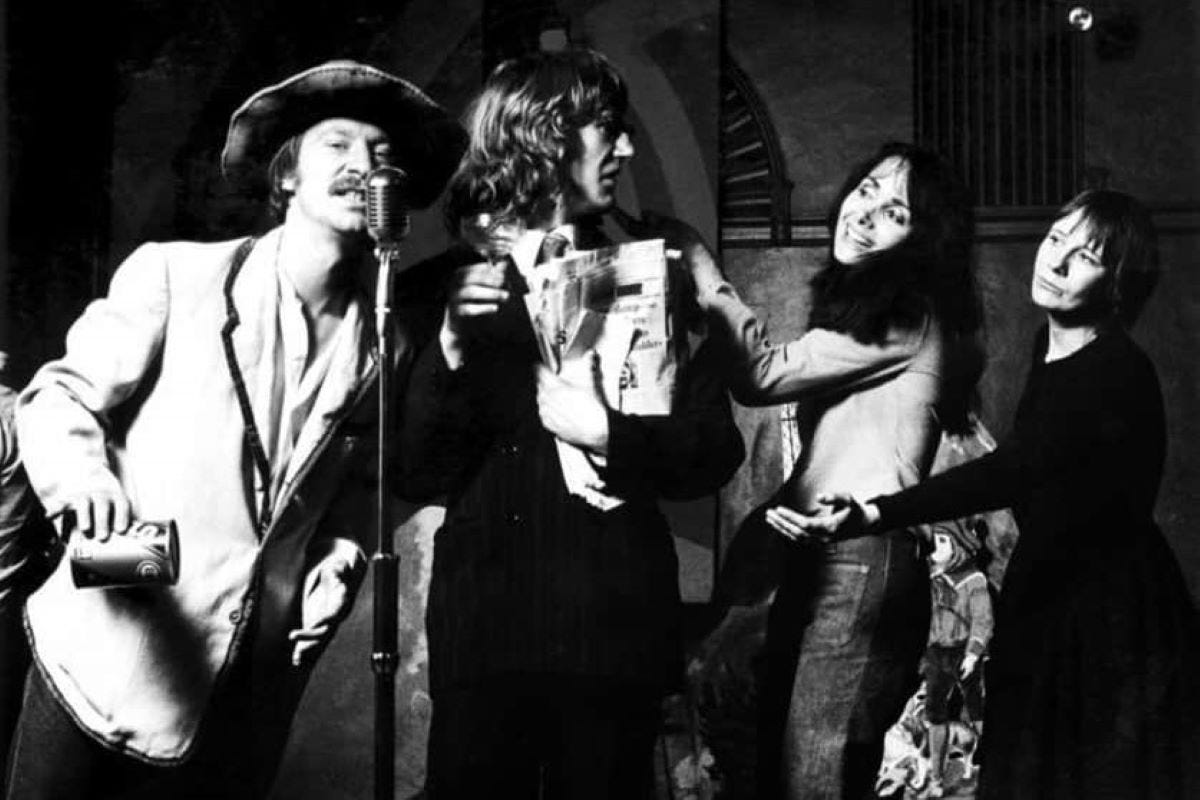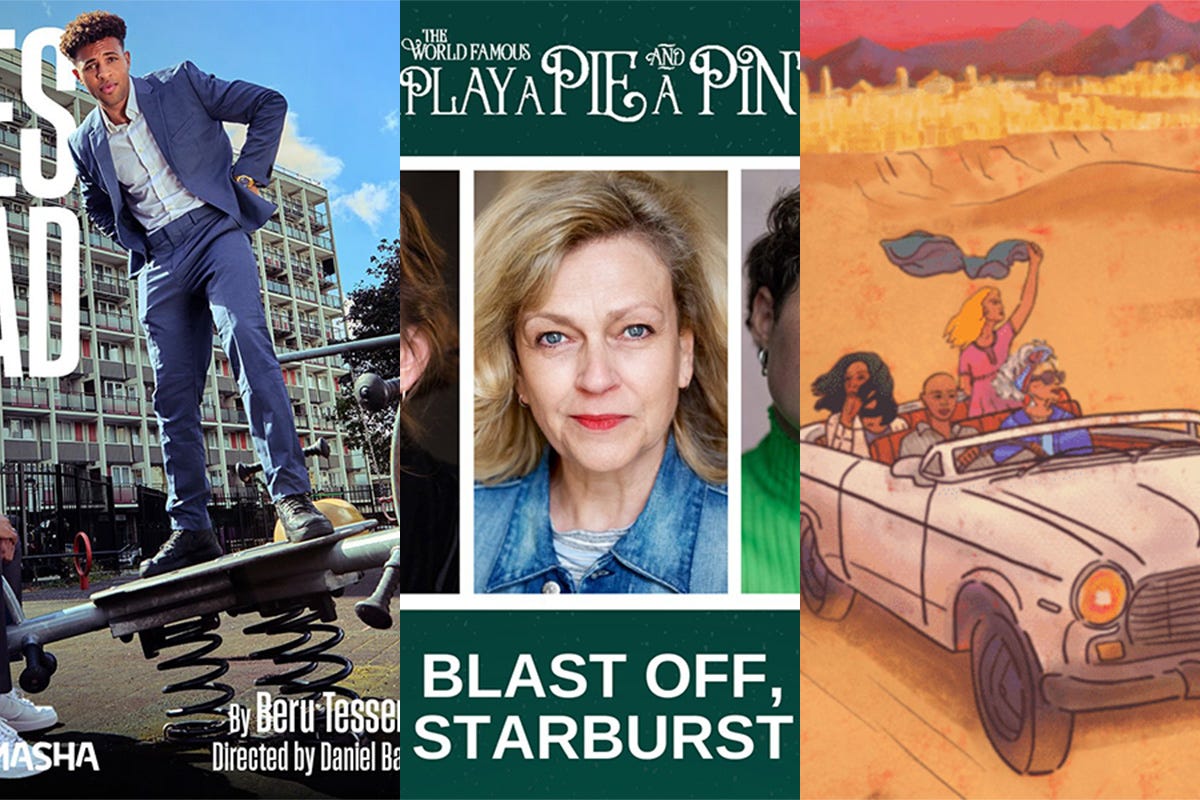I've made a podcast - but not that kind of podcast.
It is called A History Of Scottish Drama In Six Plays and you can find it wherever you find your podcasts.
Hello, and welcome to The Crush Bar, a Substack about theatre written by me, Fergus Morgan.
A particularly warm welcome to anyone that has signed up as a subscriber in the last couple of months while this newsletter has been on hiatus. What a great decision. Well done you.
I explain more about what I’ve been up to below, but the headline is that The Crush Bar is back. I’ll be posting regularly from now until Christmas. That means one issue every Friday for free subscribers, plus a Tuesday round-up of theatre stuff elsewhere for paid supporters.
On that front, I have had paid supporters’ billing paused for a month or so while I have not been posting - but I am going to start it up again as soon as I press send on this email.
If you want to get that Tuesday round-up and help keep this newsletter going, you can sign up as a paid supporter via the button below for £5/month or £50/year, or more if you feel like it.
There are a couple more things you can do to support this newsletter: you can share it with anyone you think might enjoy it and encourage them to subscribe, and you can use it for promotional purposes. There is more info about that here. Right, on with the newsletter…
I last sent out an issue of The Crush Bar in August, when the Edinburgh Fringe was approaching its chaotic denouement, and I was approaching exhaustion. It has been over two months since then. Summer became Autumn. Masterchef (The Professionals) returned. Where, I hear you demand, have I been? And what have I been up to?
Well, I chatted to a few people. I wrote a few things. I went a few places. I caught a mouse in a takeaway box. I watched Beth Steel’s Till The Stars Come Down on National Theatre At Home (have you tried National Theatre At Home? It’s great!) and the new series of House Of The Dragon. Mostly, though, I made a podcast. It is called A History Of Scottish Drama In Six Plays and you can find it wherever you usually find your podcasts. You can also listen to it right here on Substack, which is cool.
I know, I know. I am over podcasts, too. I used to be a big podcast guy. Adam Buxton. The Rest Is History. Then they all became ninety per-cent forced laughter and/or unbearable smugness and I went off them. The only one I bother with now is Jon Ronson’s Things Fell Apart, although I might give The London Theatre Review a listen because my good friend Tim Bano produced it. I also know that it is a huge cliché for someone like me to do something like this. I can explain, though. I can explain!
Firstly, my podcast is not the kind of podcast where people sit around and laugh too hard at each other’s jokes. My podcast has absolutely no jokes at all. My podcast is the other kind of podcast. I have interviewed a bunch of experts and cut their words together with some chat from me and occasionally put some music underneath to make it more exciting. It is, basically, more of a Radio 4 programme than a podcast.
Secondly, I did not do it unprompted. Someone asked me to make a podcast, promise! I suggested it to The Scottish Society Of Playwrights. They thought it was a good idea, so they gave me a bit of money – money they had got from Creative Scotland to celebrate their fiftieth anniversary – and told me to go off and do my thing. The Traverse Theatre and Bespoken Media thought it was a good idea, too, so they helped.
And thirdly, I really do think my podcast was worth making. It was, I hope, worth it from a professional point of view (I can make podcasts now! Why not pay me to make one for you?) but I also think it was worth making for, well, The Greater Good.
I moved to Scotland and started writing about theatre here in 2019. Within a few years, I had stepped into the sizeable shoes of the delightful Thom Dibdin as Scotland correspondent for The Stage. I was supposed to be some kind of expert on Scottish theatre. To be honest, though, I knew very little about Scottish theatre or its history. As I settled in here and got to know folk, though, I realised: few people actually do.
There is, as far as I can work out, no popular nonfiction book on the history of Scottish theatre: there are only a few excellent, but dense, out-of-date and difficult-to-find academic tomes and Professor Trish Reid’s superb-but-slim Theatre And Scotland, which is well worth reading. There is no popular awareness of the history of Scottish theatre either: I asked some of my Scottish pals, who are mostly smart people, about Scottish theatre and their collective knowledge was the square root of bugger all. And, perhaps most interestingly and worryingly, there is surprisingly little knowledge of the history of Scottish theatre within the Scottish theatre industry itself.
There are reasons for all that, ranging from the underappreciation of Scottish culture in academia, to the patchy history of publishing here, to the fact that Scottish theatre is partly an oral tradition, to the transience of the Scottish theatre industry resulting in a relatively “thin” collective memory. And I think that it causes problems, too.
There is a danger that some of the things that have happened in Scottish theatre are forgotten. The pool of people that have witnessed the evolution of Scottish theatre over the last fifty years is small and, frankly, it is going to get smaller still as they are not going to be here forever. Is there, for example, anyone still around who remembers the original production of Ena Lamont Stewart’s Men Should Weep in 1947? Or the 1948 Edinburgh Festival staging of Sir David Lyndsey’s A Satire Of The Three Estates?
These are huge moments in the history of Scottish culture. They should be known. Stories should be told about them. Lessons should be learned. Likewise, the 1973 tour of The Cheviot, The Stag and The Black, Black Oil, and the 1985 Traverse Theatre season, and Glasgow’s year as European City of Culture in 1990, and so many other significant events that are slipping from the collective consciousness. Not only is this stuff important to remember in its own right, though, it is also important to remember because it can help shape the future of the theatre industry in Scotland.
The history of Scottish theatre, as the podcast explores, is cyclical. There are periods – the mid-sixteenth century, the 1970s, 1990 – when the sector has been protected and supported and has broken boundaries and achieved extraordinary things as a result. There have also been periods when that protection and that support has disappeared – the seventeenth century, 1950-60, and today – and Scottish theatre has foundered. It is, to an extent, a story of potential unfulfilled, and unless we learn the lessons it has to offer by studying and understanding it, then it is doomed to remain that way.
I have written elsewhere that I think Scottish theatre is currently in one of those aforementioned periods when it lacks the support in needs to thrive but that I think it still has the necessary ingredients to thrive again, as it has done in the past when it has received that support. If my podcast can somehow contribute to a wider understanding of that fact, then I think it was a worthwhile thing to have made.
So, yes, I made a podcast. I think it was worthwhile. Give it a listen. Here it is again.
Three shows to see next week
Wolves On Road - Bush Theatre, until December 21
Ethiopian-British writer Beru Tessema had a hit at the Bush Theatre two years ago with sprawling family drama House Of Ife. Now, he is back at the same venue with his second play, Wolves On Road, about a young man sucked into the mysterious world of cryptocurrency. Directed by Bush Theatre associate artistic director Daniel Bailey - who staged Red Pitch - and starring Jamael Westman and Tom Moutchi for two weeks each, it runs until December 21. You can get tickets via the button below.
Blast Off, Stardust - various, until November 16
Hailing from the Isle of Mull and now based in Glasgow, Catriona MacLeod is a writer, performer, director and producer making lots of things happen in Scotland. She is an associate director with theatre company Vanishing Point, she founded scratch night _ and friends, and her latest play - Blast Off, Starburst, a time-bending three-hander about a bereaved woman - is being staged by A Play, A Pie and A Pint in Glasgow and Aberdeen. You can get tickets via the button below.
Women Who Blow On Knots - Park Theatre, until November 23
Turkish journalist and political commentator Ece Temelkuran’s novel Women Who Blow On Knots tells the story of four women who go on a roadtrip from Tunisia to Lebanon against the backdrop of the Arab Spring. It was a huge hit when it was published in 2013, and has now been adapted for the stage by Arcola Theatre co-founder Leyla Nazli. Director Lerzan Pamir’s production will be in English, with Turkish subtitles. You can read Natasha Tripney’s interview with Temelkuran in her Substack Cafe Europa here, and you can get tickets via the button below.
Bonus show recommendation for this weekend
Blithe Spirit - Alleyn’s School, until November 2
My sister Phoebe has proof-read pretty much every single one of the 200 or so issues of The Crush Bar that have been sent out over the last three years. In lieu of actual payment, she has asked that I let you all know about Dulwich Players’ critically acclaimed - my dad called it “good” - production of Noel Coward’s Blithe Spirit at Alleyn’s School in South London, in which she is playing Ruth. There are three performances left - one tonight and two tomorrow - and you can get tickets here.
That’s all for this issue
That is it for this week. If you want to get in touch about anything raised in this issue - or anything at all, really - just reply to this newsletter or email me at fergusmorgan@hotmail.co.uk. Or you can find me on Twitter/X, where I am @FergusMorgan.
A quick reminder of the ways you can support The Crush Bar. You can share it. You can use it for promotional purposes. And you can become a paid supporter, which means you get an extra weekly email, Shouts and Murmurs, every Tuesday. There are currently 3423 subscribers, 105 of whom are paid supporters. If you would like to join them, you can do so above.
Fergus








Really enjoyed the first episode of the podcast - it’s the kind of thing that should be on Radio Scotland or Radio 4 - and look forward to the rest. As an English teacher, it would be great if you could cover plays that are or might be part of the school curriculum like Men Should Weep. Thanks
Just downloaded the first episode, really looking forward to listening to it!